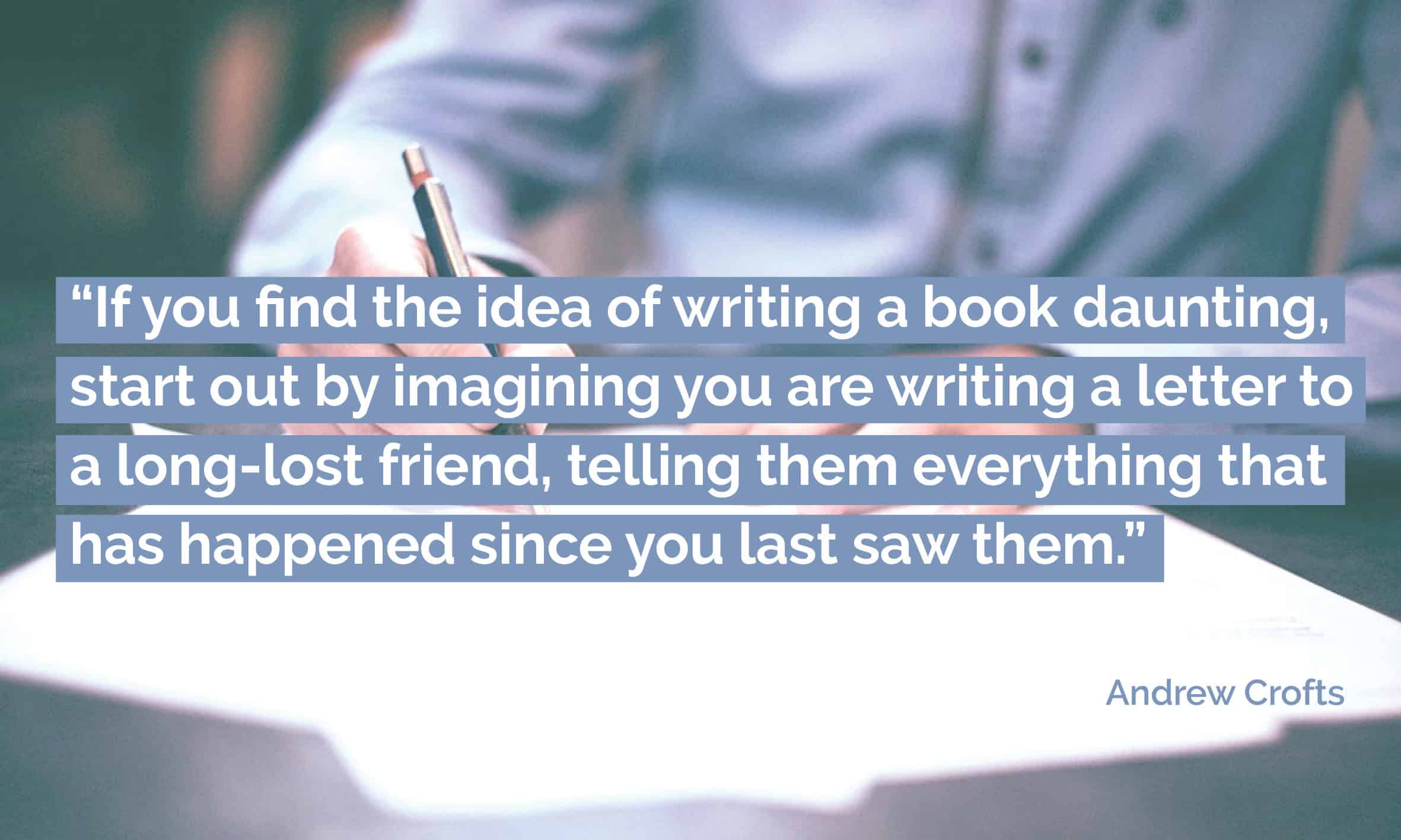I once came across a quote by the author Kate Rockland, which read: “Relationships consist of telling your same life stories to different people until someone finally appreciates them.” Although, a little on the soppy side, this idea about the power of the life story and the realisation that our stories literally make us did really hit home.
Now, most people wouldn’t consider themselves storytellers and definitely wouldn’t consider themselves authors. In actual fact, that is exactly what we all are; storytellers. By going about our day-to-day lives we are unwittingly writing our own stories. We create and develop plot lines, settings, and characters, which together make up the stories of our lives. So why is recording our stories such a daunting task?
It is often down to an apparent lack of time and the fear of not knowing how. Well, we can dispel those ‘not knowing how’ issues right here. Read through a few of our other posts, like:
These should help clear up the majority of concerns and queries around the logistics of writing. With regard to the time issue, or rather, the mindset issue – it is notable that one of the most common excuses for not doing things is because we don’t have the time. Funny how we still manage to find out who was voted out of the X Factor and we know exactly who Mr. Grey is, but anyway. Writing doesn’t have to be a chore, it doesn’t necessarily even need to be a conscious effort. Writing anything, even on the most basic level can serve as a record of our life stories.
Structure:
In this age of selfies and hashtags, we are constantly telling millions of people our stories, every day. Social media has advanced the ways and means to tell stories. Sharing a selfie, wearing smart clothes with a cheesy grin on your face, accompanied by the caption: ‘So #excited for the #firstday of my new job!’ tells a story. But how exactly do we go about converting all these snippets of our lives into a life story?
Well firstly, you need to begin by thinking about how most great stories are structured. They have a beginning, middle, and end, as well as chapters, characters, and settings. When you begin to break things down to the most basic level, your stories start to make a little more sense. Consequently, writing your life story becomes a slightly less daunting task.
- Beginning: your family before you, your birth, your early childhood memories
- Middle: significant events
- End: where you are now, your current relationships, plan for the future
Now, this ‘middle’ section is something that you have to decide for yourself, as it is entirely up to you what the significant aspects of your own life are. It may, however, be helpful to make a note of the main things you think about on a daily basis and see if significant themes begin to emerge. Money? Relationships? Pets? Where does your mind wander when you’re alone with your thoughts? This may provide an insight into what is most significant to you and in turn, deliver you key plot points.
Execution:
This is often the most difficult part as it is common to be afflicted by ‘blank page syndrome’. As a result, we procrastinate. Luckily for us, however, professional biographer, Andrew Crofts, has provided some insight into how best to approach making sense of our memories:
“The best thing is to write from memory first because then the most interesting and important events and characters will rise to the surface. Then go through all the source material like diaries to check that you have got the facts right and that you haven’t forgotten anything vital.
“If you find the idea of writing a book daunting, start out by imagining you are writing a letter to a long-lost friend, telling them everything that has happened since you last saw them. That way your natural voice will come through.
“Getting the first block of material down is always the hardest part. Editing, tweaking and expanding are the fun bits once the bulk of the project has been done.”
Remember, writing your life story is not the same as writing a memoir. So, if you feel yourself getting hung up on one specific tale, it may lend itself more as a separate memoir, rather than an unbalanced life story. Overall, it is important to maintain a balanced structure throughout your ‘life story’, so it feels like just that; a ‘life story’ and not just one of ‘life’s many stories’.
For more information on the logistics of writing your life story, follow the links to the articles listed near the top of the page. However, if you feel your story would actually be better suited to becoming a memoir, why not have a read of our article on ‘How to Write a Memoir’?
Written by Amber Hicks


